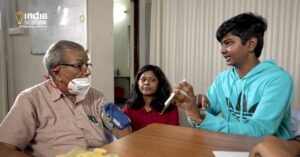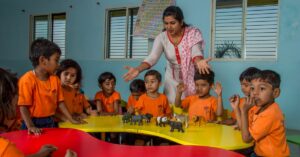At UP Schools, Music Is Helping Kids Practice Better Hygiene & Stay Illness-Free!
The children have started not only internalising it, but are also trying to translate this knowledge and practice to their families and community at large.
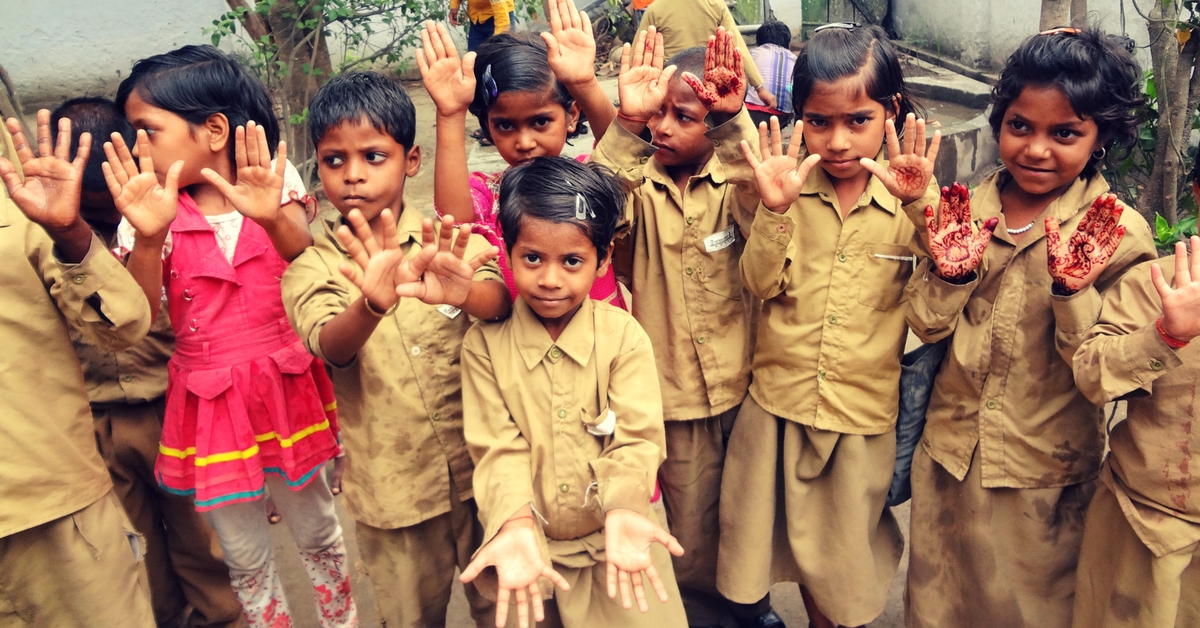
When Gondappa’s son reached the age of five, he walked with his hands on the ground and feet in the air to the temple of the village Goddess in Thesgora, Madhya Pradesh. A host of villagers accompanied the man to celebrate the survival of the first child who reached the age of five, in a village known for the highest cases of diarrhoea in India.
According to a WHO report, India has the highest number of Under 5 mortality in the world with an estimated 1.2 million deaths in 2015 – 20 per cent of the 5.9 million global deaths.
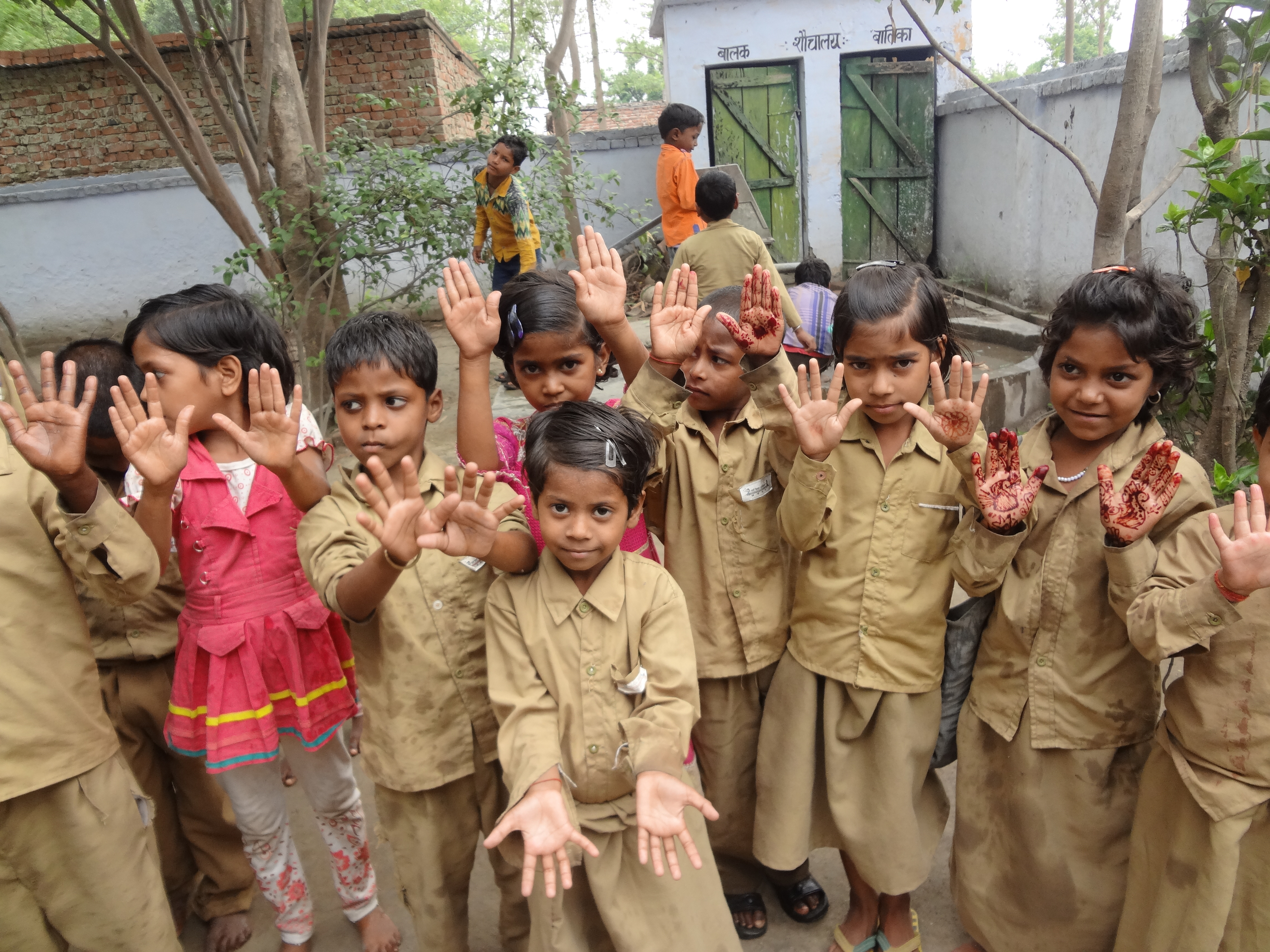
“The most rampant causes for the rising Under 5 mortality rate in India include unsafe washing practices and open defecation,” says Paresh Kumar, founder of DevInsights, a Delhi-based Research, Monitoring and Evaluation private company.
In an innovative solution to drive behavioral change and attain social development, Paresh’s company came up with an model called Music 4 Development or M4D.
Conceptualisation
When Prime Minister Narendra Modi introduced the Swachch Bharat Mission on October 2, 2014, the aim was to ensure a clean India by 2019. The mission saw numerous bureaucrats, politicians and celebrities promoting cleanliness activities.
A major course of action consisted of allocation of funds to build toilets around the nation. But mere construction of toilets isn’t enough, thinks Paresh. “Construction may be the first step, but the key is ensuring the usage of those toilets. Many a times, it doesn’t come naturally for most people who’ve never lived with that kind of infrastructure,” he says.
The challenge then is to drive behavioral change by encouraging people to not litter streets, build and use latrines in their houses and educate their children and neighbours about the significance of hand-washing.
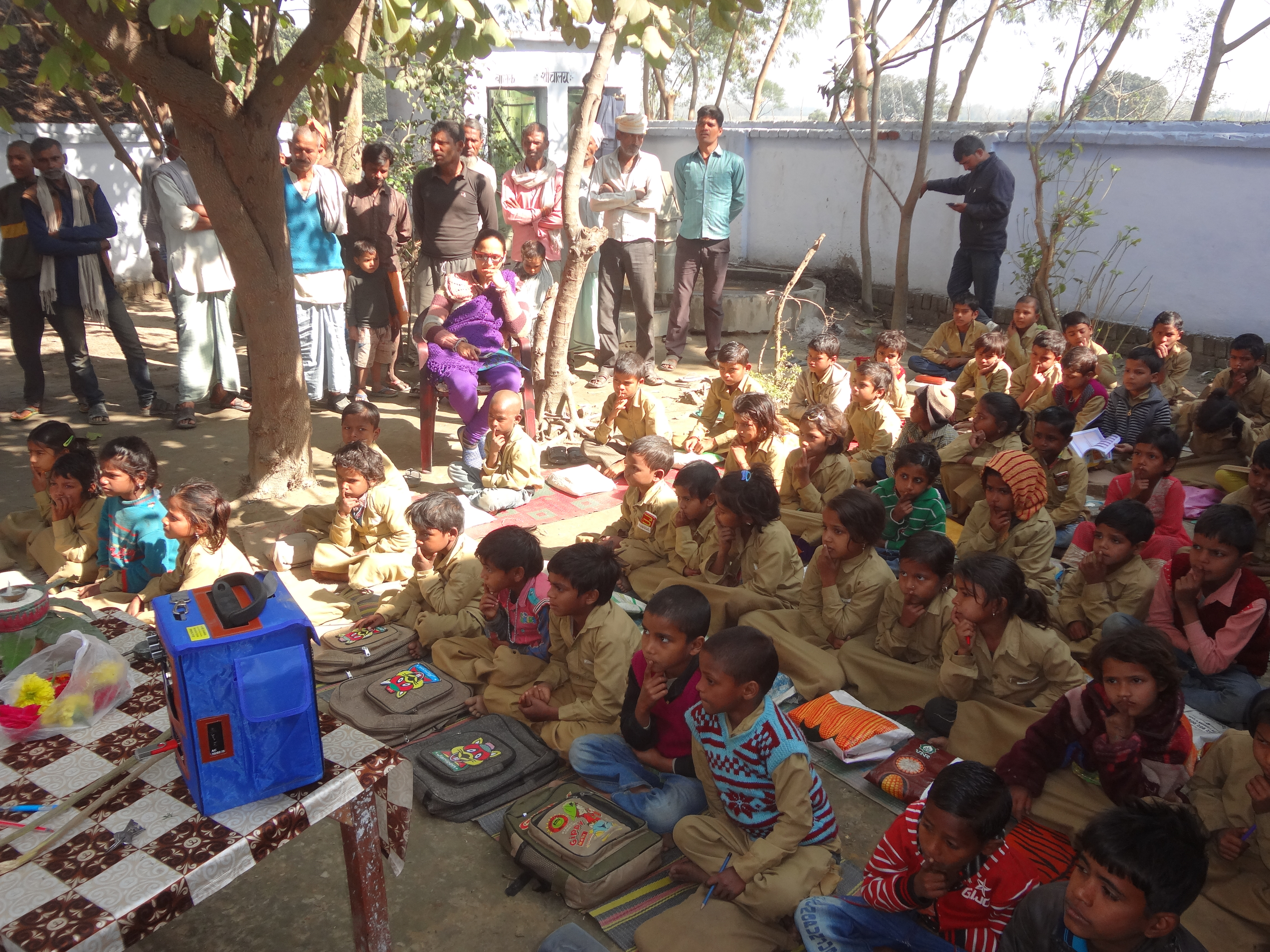
Music 4 Development believes in achieving this by engaging communities through music.
Talking about the conceptualisation of the behavior change model, Paresh says, “In 2015, we were writing a book on water sanitation and hygiene wash, where they was a chapter on communications. We conducted robust and in-depth research into the existing communication models being used in the country. And we realised that most of them were cliche methods of mass communication, where either a big celebrity was taken on board or only interpersonal communication was bestowed to frontline workers like the ones from Asha and Anganwadi. Eventually what happens is, behavior change does not take place.”
They started brainstorming different innovative models that would hit the right chords of their target group which included rural India and urban slum dwellers. An in-depth literature review on the impact of music led to the concept of Music 4 Development.
“Music has immense power. I am a music composer and writer myself. I started questioning myself about why I don’t utilise both skills to bring about an innovation? That’s how Music 4 Development came about. It is a unique combination of science and art. A marriage of behavioral science and the art of music to produce social change and development.”
You may also like: Meet the Family Behind Rajasthan’s Lok Utsav, a Festival Celebrating the Mewati Community’s Music
Uniqueness
The uniqueness of the concept of M4D is – it believes in making children the agents of change. “Changing the behavior of an adult is way difficult as compared to a child. Giving you a simple analogy – all of us know smoking is injurious to health; it’s even written on the packet. But we still continue smoking. This happens when the communication model is ineffective and does not hit the audience,” says Paresh.
Paresh believes that children, as against adults, have an innate power – the ‘pestering’ power, he calls it. If the child continues to pester, he/she can bring about the desired change in behavior.
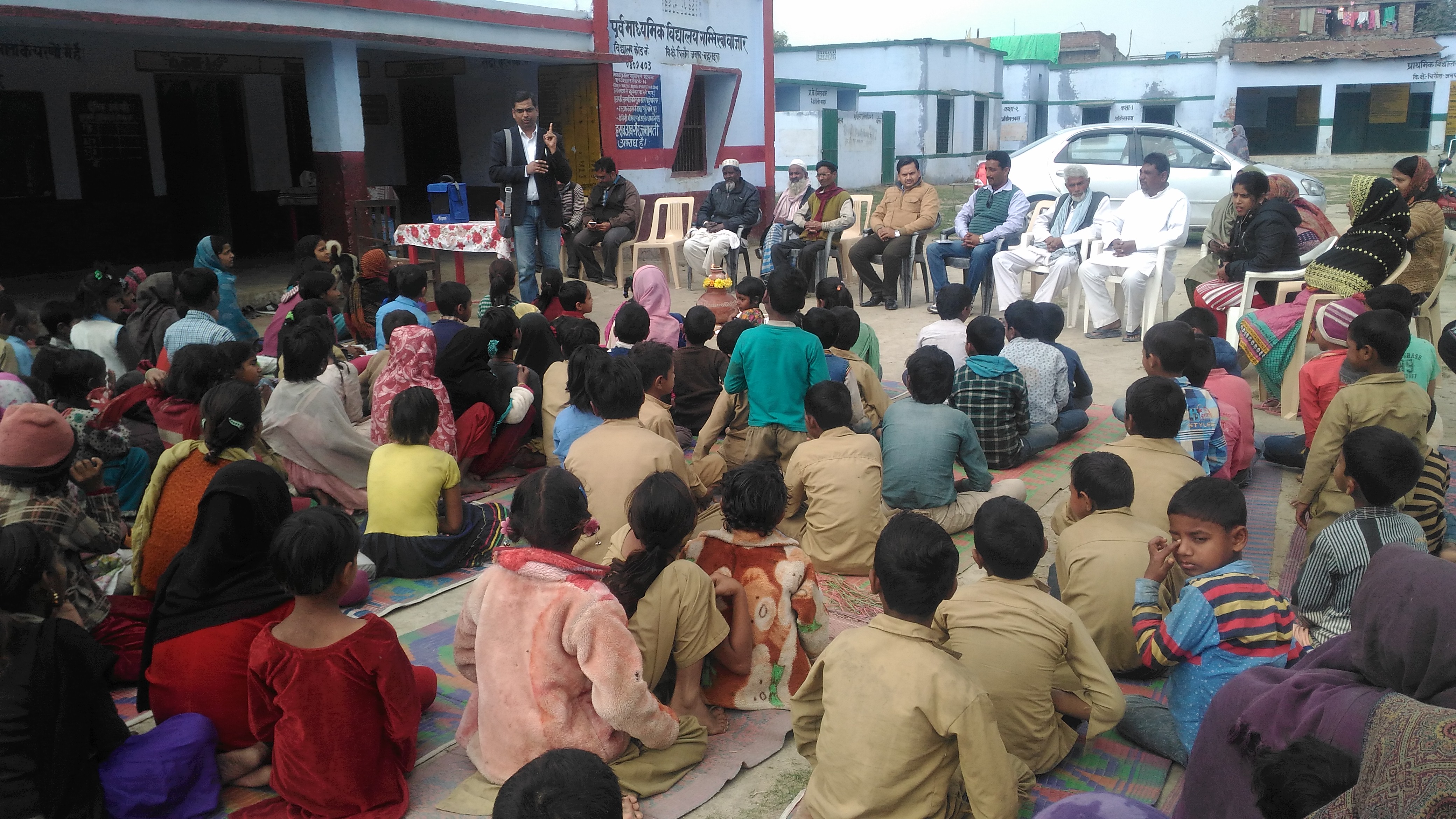
“The intervention happens at the school level where children are targeted and where they themselves act as agents of change. When you catch them young, you can be sure that they’ll understand and absorb the message better and retain this behaviour for a longer time as compared to adults,” says Paresh.
Just how Mozart’s music was used in the past to direct appropriate behaviour among young offenders and punk rock used as a strong tool for communicating, rebelling and empowering women, M4D aims to effect sustainable change in behavior.
Every song is constructed based on thorough research where a team of dedicated researchers visits the target area to understand the current knowledge, attitude, behavior and practices. These include their likes, dislikes, lifestyles, interests, preferences, etc.
“Children have strong likes and dislikes, and they are extremely honest about it in our focus group discussions. The effort is to create music that the children of a particular region are familiar with. So, the songs don’t seem foreign and easily position themselves in the mind of the child,” says Paresh.
These songs are then sung by children accompanied by a few adults. The idea is not heavy duty messaging. The lyrics strictly promote and emphasise key WASH behaviours. They are routinely played in the school. The top priority is recalling it and ensuring it is enjoyable. And yet making sure it doesn’t overshadow the lesson. The lyrics are playful, informative and easy to grasp for any young child.
Read more: A New Road Rage: Traffic Cops Promote Safety With Music Videos, Puzzles & Dance
Challenges
“We developed this model by utilising our time, money and resources. We did try to raise funds, but two factors did not work in our favour – the fact that we were using music sung by children sounded kiddish to a lot of people we pitched the plan to. Also since we are a private organisation, not many were interested in taking the project on board,” says Paresh.
Tables turned when DevInsights pitched the concept to the Aga Khan foundation, who were looking at doing something new. “We explained the model to them and they saw merit in it. They supported us in terms of giving us an opportunity to work with their schools in the Bahraich district of Uttar Pradesh. They told us to pilot our concept there and see the results.”
The pilot was conducted in 6 government schools. The songs were widely accepted by the children and one could always see a group of students singing along, memorising the lyrics and dancing to them.
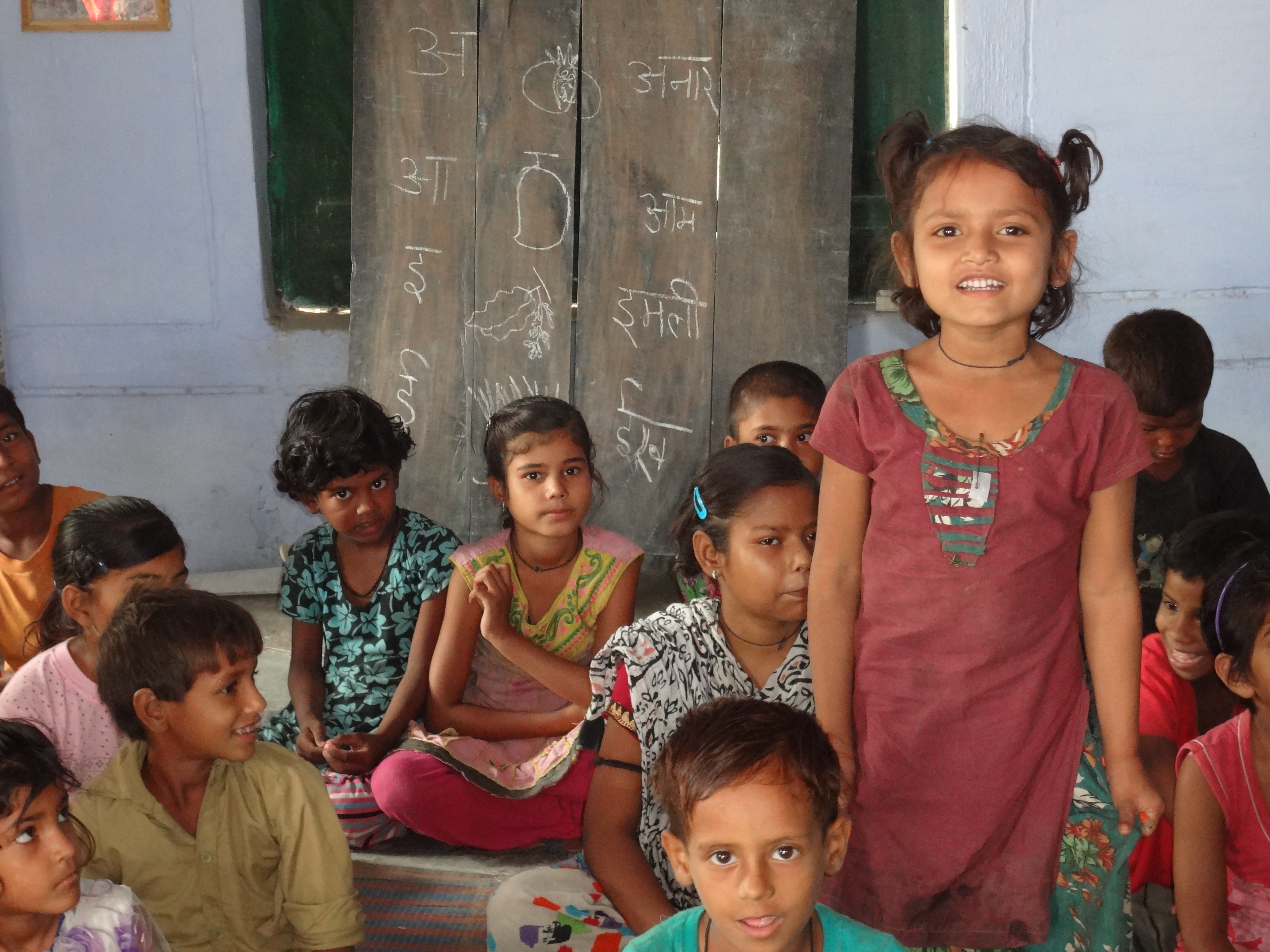
“The teachers were very instrumental, cooperative and participative. They expressed how the model was making their work a lot easier. That’s the beauty and power of music. The children have started not only internalising it, but are also trying to translate this knowledge and practice to their families and community at large,” shares Paresh.
Impact
Paresh’s team conducted a detailed monitoring and impact report on three schools to track toilet usage.
“Three months ago the baseline data in these schools displayed that only 5 per cent of the students used toilets in the school. With our M4D behavior communication model in place, the endline has shown a rise as high as 90%,” says Paresh.
He believes that the successfully piloted model can be replicated into different settings, sectors and geographies. It is a low-cost model, as the only expense includes music production. The songs can be played in the entire district to drive change because the language in which it is sung is common to the masses.
“The model could be used to create awareness not just about safe WASH practices, but also menstrual hygiene, breastfeeding, malnutrition, complementary feeding and a host of other issues that fall in the purview of health,” he says.
Connect to DevInsights here.
To know more about the initiative watch:
Like this story? Or have something to share?
Write to us: [email protected]
Connect with us on Facebook and Twitter.
NEW: Click here to get positive news on WhatsApp!
This story made me
- 97
- 121
- 89
- 167
Tell Us More
We bring stories straight from the heart of India, to inspire millions and create a wave of impact. Our positive movement is growing bigger everyday, and we would love for you to join it.
Please contribute whatever you can, every little penny helps our team in bringing you more stories that support dreams and spread hope.







